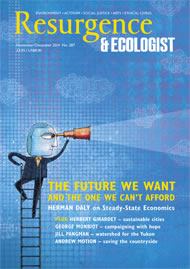Gregory Sams opens his book with a quotation from Thomas Paine’s Common Sense, the pamphlet that inspired the American Revolution in 1776: “A long habit of not thinking a thing wrong, gives it a superficial appearance of being right…” His point is that we assume modern societies require central command and control, and have difficulty imagining how they might function without it. As a result we take it for granted that state government is necessary, and limit ourselves to discussing its complexion. But what if we no longer need it at all?
The State Is Out of Date argues that most, if not all, state functions either could be performed better in other ways, or don’t need to be done in the first place. It is organised into short, readable chapters, peppered with pithy quotations, from Lao Tzu to Lenin, and examples drawn from sources ranging from ancient Mesopotamia and the Roman Empire to the FBI and the Common Agricultural Policy. Unlike many anarchist manifestos, this is not an attempt to improve human nature, but rather just to arrange things better. Sams has been accruing this material for decades, and his book is densely packed with smart and original thinking.
Sams’ roots are in the ecological movement – he founded Harmony/Whole Earth Foods in the 1970s – and his thinking is informed by his pioneering engagement with chaos theory in the 1990s (from which he drew the insight that what people call ‘chaos’ often works fine). His critique of the state transcends the politics of left and right. Though he sees consumer culture as wasteful and self-destructive, he regards multinational corporations as an essential part of any post-state future: unlike governments, they don’t coerce you into buying their products or imprison you if you don’t. He sees the insurance industry in particular as a valuable model for managing risk, taking on debt and cutting crime without the need for state intervention.
Some elements of the post-state landscape are easier to visualise than others. Government regulation of medicines and foods, for example, could simply be replaced with the trade licensing systems and trust networks that consumers naturally develop in their own interests; vast projects such as the bloated and corrupt ‘War on Drugs’ could be abandoned tomorrow. But Sams accepts that we need complex structures to manage some aspects of modern societies, and that some of their post-state forms can only be guessed at. Behind everything looms a banking system and money supply that has become so opaque and dysfunctional that its collapse may be inevitable. If so, he reckons, bring it on.
As its title suggests, The State Is Out of Date is a critique rather than a list of solutions. Its subtitle, We Can Do It Better, points out the direction of travel. It is not a call for revolution – modern states are extremely well defended against direct confrontation – though Sams is attracted to ‘fluffy’ positive protest and subversive culture-jamming, and offers spirited tales of his engagement with direct action groups such as Reclaim the Streets in the 1990s. Perhaps the most powerful weapon in the hands of the people is the gradual withdrawal of activity and energy from the state – which, appropriately enough, is already happening without any organisation.
The previous version of the book was titled Uncommon Sense, a quality even more striking in this new edition. Thomas Paine’s Common Sense pronounced the death of monarchy and the divine right of kings, and called for its replacement with the modern state. Gregory Sams, in the same spirit, is calling time on the modern state and asking us to imagine what comes next.







